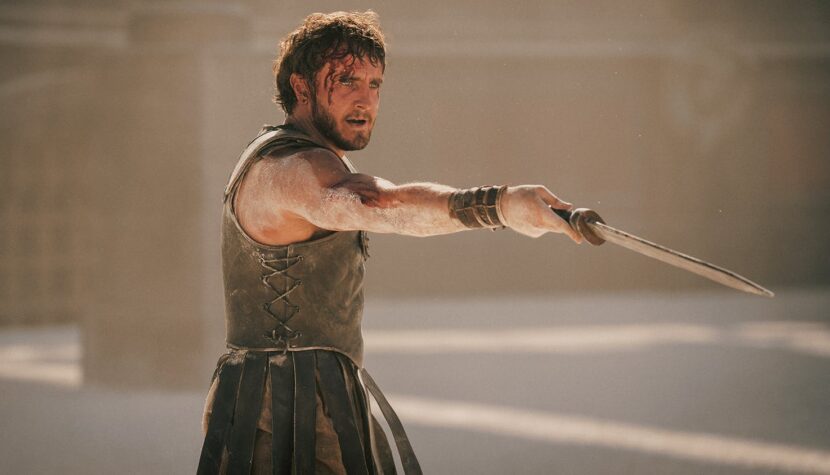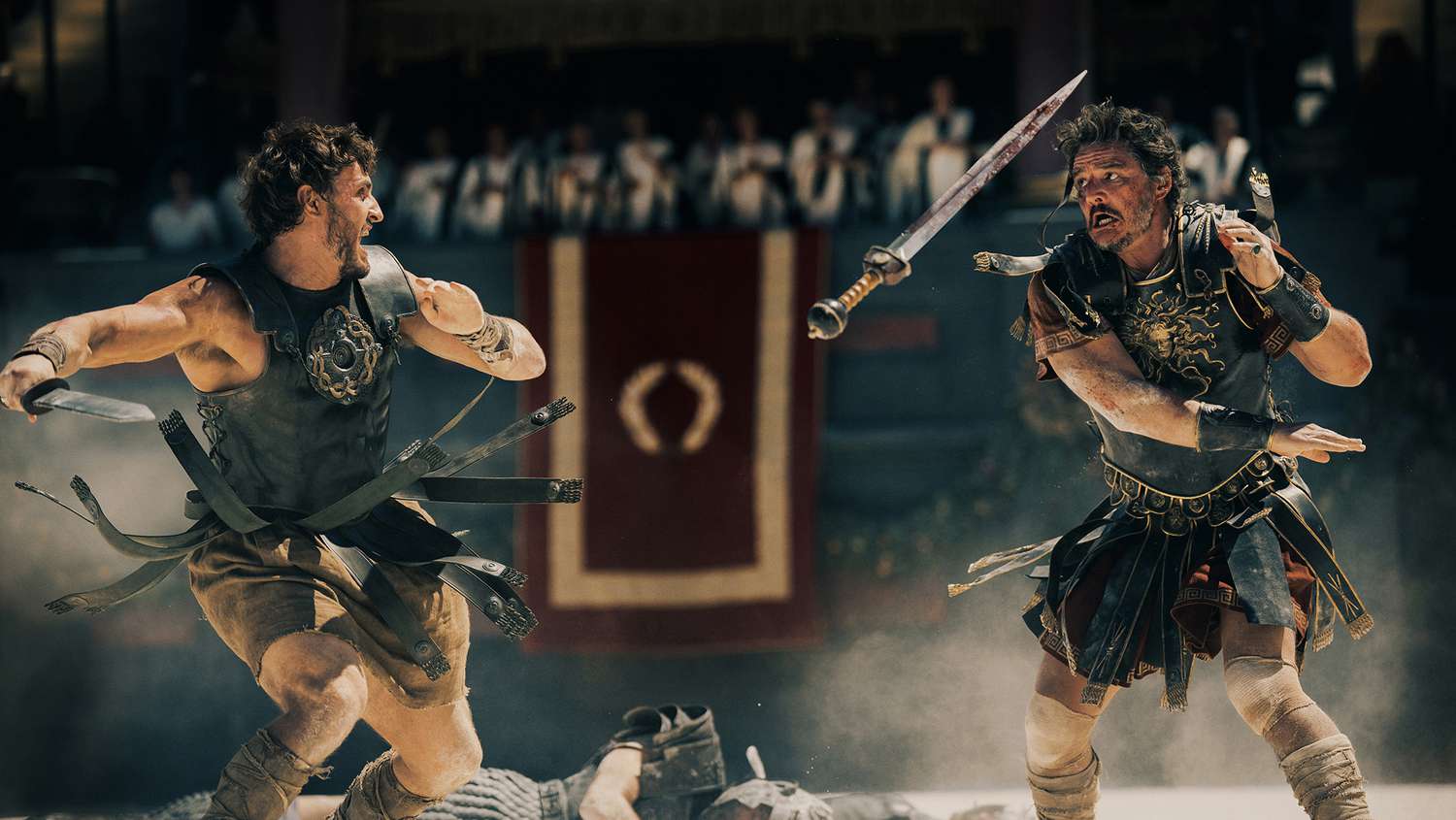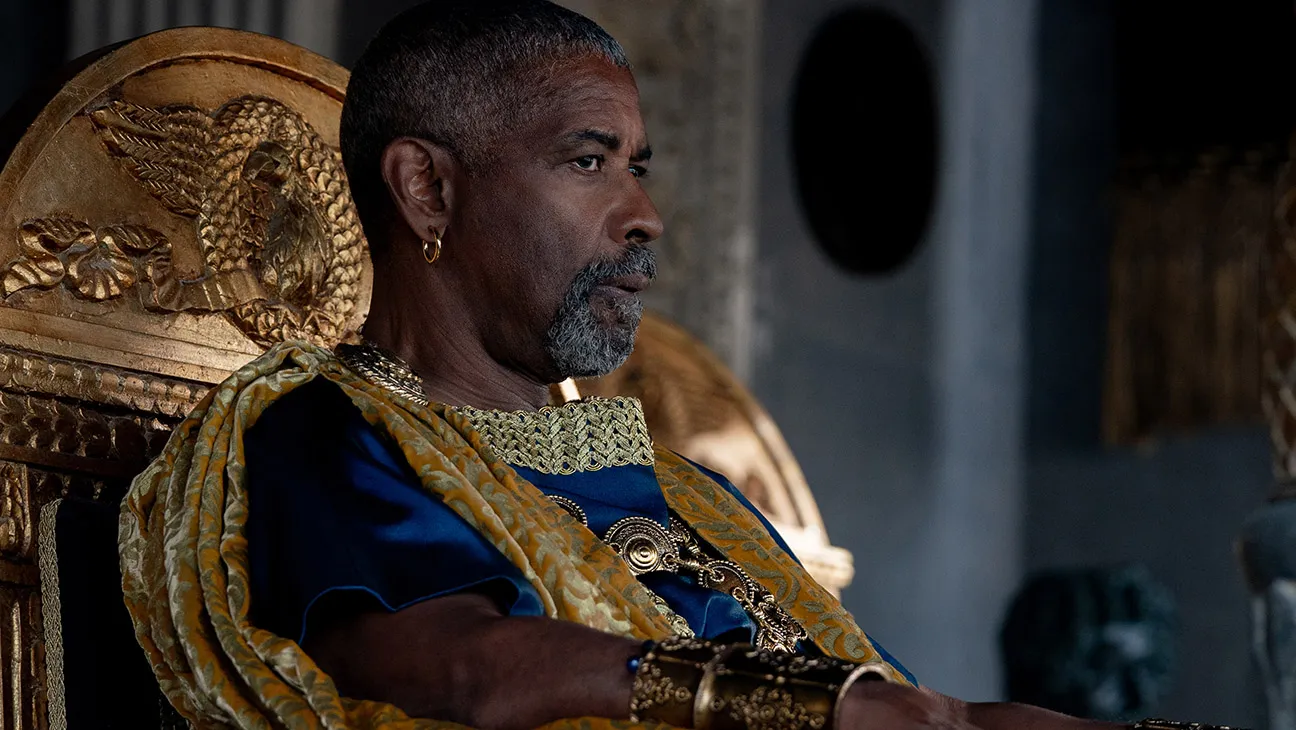Why GLADIATOR II Might Actually WORK

Sandal cinema clearly continues to fascinate us, especially when it becomes a pretext for recreating the brutal side of Ancient Rome. The myth of the gladiator is making a grand return to television and cinema, along with a sequel to a hit from years past – “Gladiator II”.
Amazon is heavily promoting its latest series, “Those About to Die,” starring Anthony Hopkins in a lead role. The production, which bears resemblance to the long-finished “Spartacus,” is helmed by Roland Emmerich. The potential success of this series will undoubtedly aid in promoting another gladiator-themed production set to premiere this year in theaters. This film has sparked significant media and audience interest since its announcement. So, what are the chances of “Gladiator II” succeeding?
Although the gladiator myth has long existed in pop culture, its widespread popularity was largely due to Ridley Scott at the turn of the millennium. “Gladiator” from 2000 was a massive hit, achieving both artistic and box office success. It won five Oscars, including Best Picture and Best Actor for Russell Crowe, whose career soared from that point. The film, costing around $100 million, managed to gross nearly five times that amount worldwide, a remarkable feat for a historical film.

However, “Gladiator” had a fundamental problem—it wasn’t suitable for a direct sequel. Why? The screenwriters convincingly chose to kill off the main character. For years, a sequel was not considered, and the film held a deserved spot among works like “Titanic,” where a return seemed impossible, making it even more exceptional.
This status lasted for many years until “Top Gun: Maverick” and earlier “Blade Runner 2049” somewhat changed the rules for creating sequels. Recently, Hollywood has seen the emergence of the “legacy sequel” phenomenon, where sequels to major hits from years past are created. These films remain standalone or part of a series that has aged enough to allow a nostalgic reunion with old characters. This trend gave rise to films like “Ghostbusters,” the new “Beetlejuice,” the new “Beverly Hills Cop,” and the revivals of “Star Wars,” “The Matrix,” “Rocky,” “Scream,” and many other franchises that had grown somewhat dusty. The television world also draws from this trend, as seen with “Cobra Kai,” a legacy sequel to “Karate Kid.”
For Hollywood screenwriters, nothing is impossible, especially when there’s money to be made from reviving a cinematic corpse. Collaborating with Ridley Scott, David Scarpa found a way to cleverly sidestep the fact that the original film’s main character is no longer available. They moved the action several years into the future, making the protagonist this time Lucius, the nephew of Emperor Commodus and witness to Maximus’s death. I don’t know how this aristocratic boy ends up in the slave-fighting arena, but that’s the starting point for “Gladiator II.”
It may sound a bit far-fetched, but that quickly fades when considering the actor cast in the lead role, who genuinely sparks curiosity. Paul Mescal has had several successes in dramas, notably catching my (and likely others’) attention with an Oscar nomination for his performance in “Aftersun.” I consider the film outstanding, and Mescal’s role, which so originally and movingly portrays the emotions of a lonely and lost person, is hard to watch without feeling moved. His Oscar nomination brought him significant recognition, highlighting his exceptional dramatic skills and making his name hot property. Will “Gladiator” boost his career? It seems to me that currently, he is helping promote the film, making it more interesting.
Of course, one might lament Ridley Scott’s creative condition, as he seems to be coasting on the success of his best years, creating films half-heartedly. However, I believe Scott hasn’t lost his creative instinct—he’s just become a bit lazier and more nonchalant, but his work still maintains a certain quality level. For example, his last two films, both historical and thus similar in style to the new “Gladiator,” serve as evidence. “The Last Duel” was a financial failure, mainly due to poor distribution and the pandemic, but it performed well on streaming, which is pleasing because it’s a very original, thought-provoking work. And “Napoleon“? It sparked major controversies and received mostly negative attention, with critics and audiences mocking it for historical inaccuracies, an extravagant tone, and Joaquin Phoenix’s mismatched portrayal. But in the end, at least for me, this film has something compelling, offering an interesting interpretation of the great leader. Let’s be honest—if we expected a British director to glorify a legendary Frenchman, we were naive.

If we approach “Gladiator II” with appropriate distance, considering what was presented in “Napoleon,” I believe this viewing experience could succeed. As absurd as revisiting this story may seem, as much as the whole project looks like it was crafted by an algorithm or old-school Hollywood accountants, banking on the controversy of resurrecting an impossible-to-revive story, paradoxically, it might just work. I waited to form this opinion until I reviewed the initial promotional campaign efforts, and I now have no doubts. Both the poster and trailer convey exactly what I expect from this film: a well-made, brutal, slightly cringe-worthy, yet dynamic story of a man who, aiming for the top, first falls to the very bottom. He’ll be supported by a cast rich in renowned names. Judging by the first shots, these actors truly enjoyed their roles.
I hope the creators also enjoyed returning to Ancient Rome. It is an exceptionally fruitful setting for cinema. On one hand, it offers the opportunity to present spectacular visions, as the ancient Empire, the cradle of civilization, continues to stimulate the imagination and inspire (see: Francis Ford Coppola’s “Megalopolis“). On the other hand, the gladiator myth in pop culture holds significant influence for a specific reason—it encapsulates a modern fear of enslavement, with the possibility of fighting for survival in the light of glory serving as an outlet.
This works and will continue to work. Ave!

